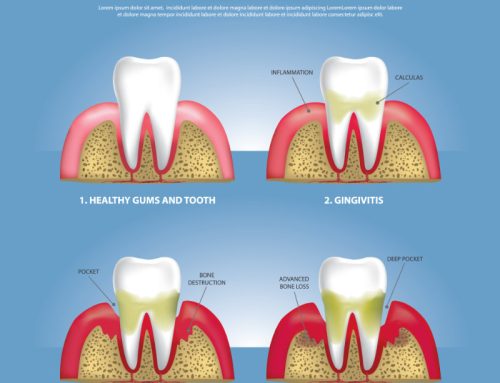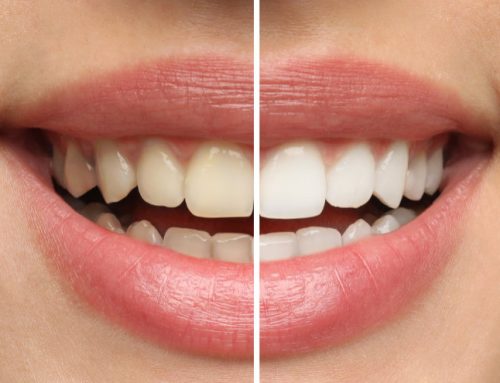Understanding Dental Erosion: Revealing the Truth Behind This Common Issue
Dental erosion is a widespread condition, yet many individuals remain unaware. In this comprehensive article, we aim to shed light on all you need to know about dental erosion. We will explore its connection to energy drink consumption, according to one reputable dentist from Shelby Township, MI.
Unveiling the Depths of Dental Erosion
Studies indicate that approximately 26% of the American population will experience tooth decay or erosion at some point during their lives, which can be attributed to poor brushing techniques, irregular flossing habits (especially after meals), indulgence in sweets and candies and consumption of sugary beverages – most notably energy drinks as significant culprits in dental decay and erosion.
To truly comprehend the intricacies of dental erosion, we must delve deeper. By uncovering its many contributors, we can better illuminate its complex nature while equipping individuals with the knowledge necessary for protecting their oral health effectively.
- Acidic Diet: While moderated consumption of acidic food and beverages is usually safe, excessive consumption may harm tooth enamel. Citrus fruits, tomatoes, and certain soft drinks contain acid that erodes enamel over time – leaving your teeth more susceptible to decay and erosion.
- Dry Mouth: Saliva is essential in maintaining oral health by neutralizing acids and washing away harmful bacteria from your mouth. However, those living with chronic dry mouth conditions or taking certain medications may experience reduced saliva production, leaving their teeth vulnerable to erosion as their protective qualities diminish.
- Gastrointestinal Conditions: Gastrointestinal conditions like acid reflux or frequent vomiting expose teeth to stomach acid that can erode enamel and lead to dental erosion when regurgitated into the mouth. Therefore, managing these conditions and seeking appropriate medical treatment is crucial to protect oral health and mitigate their negative impact.
- Tooth Grinding (Bruxism): Repetitive teeth grinding during sleep, known as bruxism, can wear away enamel over time and expose teeth to erosion and decay. Constant friction and pressure on them compromise their protective layer, exposing them further to erosion and decay. Wearing a custom-fitted mouthguard may help alleviate some of its adverse effects while protecting teeth against unnecessary damage from bruxism.
- Gene Factors: While genetic predispositions cannot always prevent dental erosion, specific individuals are more prone than others due to inherited factors that alter tooth composition and strength – potentially increasing erosion risk. While the impact of such genetic factors cannot permanently be eliminated, keeping up with daily oral hygiene practices and professional dental care services may still reduce their impact.
By understanding these underlying causes, individuals can take proactive measures to combat dental erosion effectively. Implementing measures such as limiting acidic food and beverage consumption, staying hydrated, managing gastrointestinal conditions effectively, treating bruxism appropriately, and scheduling regular dental checkups will significantly lower dental erosion risk while supporting optimal oral health.
Knowledge is power, and with this newfound insight into dental erosion, you can take control of your oral well-being. Remain vigilant, be proactive, and demonstrate your dedication to dental wellness – remember, a beautiful smile begins with a healthy foundation!
Discovering the Root Causes of Dental Erosion
Dental erosion, commonly called tooth decay, occurs when enamel becomes compromised. While enamel provides a strong defense for our teeth, it’s not invulnerable to damage – particularly after drinking excessive quantities of red wine, tea, or coffee. You can maintain healthy enamel levels and protect it through consistent oral health practices like brushing and flossing and regular dental checkups.
Dental erosion is caused by oral bacteria in your mouth. Following meals, they become active again, feeding off leftover food particles lodged between teeth and producing acids that gradually wear away the enamel layer over time. Unfortunately, many don’t notice until noticeable tooth damage or discomforting symptoms such as hot/cold food sensitivity, frequent toothaches, and similar discomfort become noticeable.
Individuals must identify all the causes of dental erosion to combat it and safeguard their smiles from future erosion effectively. By understanding its underlying factors, individuals can take proactive measures against dental erosion’s occurrence and safeguard their precious smiles.
- Acidic Foods and Beverages: Modern diets often include abundant acidic food and beverages. From citrus fruits and pickles to carbonated drinks and sports beverages, acidic substances can wear away at tooth enamel over time, so it is wise to consume these items in moderation to maintain dental health.
- Poor Oral Hygiene Practices: Inadequate oral hygiene routines create the ideal conditions for dental erosion to flourish. Irregular brushing techniques, skipping flossing sessions, or postponing dental checkups all play a part in contributing to tooth enamel wear-and-tear. Maintaining an effective dental defense by adhering to recommended guidelines regarding brushing, flossing, and professional cleanings is crucial in protecting our oral health.
- Dry Mouth Syndrome: Saliva is a natural defense against dental erosion by neutralizing acids and aiding remineralization. Unfortunately, individuals suffering from dry mouth syndrome due to medical conditions or medications experience decreased saliva production, creating an environment conducive to acid build-up and enamel erosion. Staying hydrated, using saliva-stimulating products, and consulting a healthcare provider are all ways that may help alleviate dry mouth symptoms and minimize their negative impact on dental health.
- Acid Reflux and GERD: Gastroesophageal reflux disease (GERD) and frequent acid reflux episodes expose teeth to stomach acids, potentially eroding enamel over time and leading to dental erosion. Effective management of these conditions through lifestyle modifications, medication, or consultation with healthcare providers is necessary for minimizing acid exposure for tooth enamel erosion.
- Bruxism (Teeth Grinding): Grinding or clenching teeth, or bruxism, puts excess pressure on tooth surfaces, leading to erosion and decay of enamel and wear on enamel layers. A customized nightguard or seeking treatment options for bruxism may help safeguard teeth against erosion risk and help to preserve the integrity of their enamel surfaces.
By understanding the causes of dental erosion, individuals can make more informed choices to protect their oral health. Preventive measures such as consuming acidic foods and beverages in moderation, practicing consistent and thorough oral hygiene routines, managing dry mouth syndrome/acid reflux issues, and controlling bruxism can significantly lessen the chances of dental erosion.
Knowledge is power! Arm yourself with this insight into what causes dental erosion and take measures to keep your beautiful smile for many years.
Dental Erosion Mechanism: Understanding Its Components and Process
Neglecting to maintain proper dental hygiene can result in the accumulation of plaque in your oral cavity. Plaque, a sticky film that covers teeth, can be easily removed through brushing; however, if left alone for extended periods, plaque can solidify into tartar which adheres firmly to teeth, leading to gingivitis or tooth loss that requires professional intervention from a dentist.
Understanding the intricate mechanisms underlying dental erosion is integral for understanding why tooth enamel erodes over time and taking preventive measures against further decline. By uncovering this process, we can gain insight into the factors contributing to erosion and devise preventive strategies to safeguard our oral health.
- Acid Attack: Frequent exposure to acidic substances is one of the primary sources of dental erosion. Foods, beverages, and stomach acids all contain acids that attack teeth enamel directly, causing them to soften over time and eventually wear away over time.
- pH Balance: The pH scale measures the acidity or alkalinity of any substance. Enamel erosion typically occurs when oral environments become increasingly acidic, shifting their pH balance away from its neutral level of 7. When this happens, tooth enamel becomes susceptible to acid erosion – factors like diet, saliva composition, and overall oral health can all influence this balance in our mouths.
- Demineralization: Acidic substances trigger demineralization, in which acid dissolves the minerals that makeup tooth enamel – calcium and phosphate, among others – which weaken its structure and make it more vulnerable to erosion. If this process continues without adequate remineralization efforts, tooth decay or erosion could occur.
- Saliva’s Protective Role: Saliva is essential in maintaining oral health and combatting dental erosion. It helps neutralize acid, remineralize enamel, and flush away food particles and bacteria; however, conditions like dry mouth or reduced saliva production can thwart its protective abilities, leaving teeth more susceptible to erosion.
- Abrasive Forces: Dental erosion can also occur from abrasive forces. Aggressive brushing with hard-bristled toothbrushes or using toothpaste with harsh abrasives and excessive tooth grinding can gradually wear away tooth enamel over time, so gentle brushing techniques and soft-bristled toothbrushes must be employed when brushing. In these instances, it would also be wise to seek professional advice if teeth grinding (bruxism) becomes an issue.
Understanding the mechanism of dental erosion enables individuals to take proactive measures in their oral care routine, such as limiting acid exposure, maintaining an ideal pH balance in the mouth, encouraging demineralization, and protecting enamel from abrasive forces – to decrease risks of dental erosion significantly.
As always, prevention is critical. By taking these measures and seeking professional dental care, you can protect the integrity of your enamel, maintain a beautiful smile and enjoy optimal oral health for years to come.
Rejecting Preventive Measures as the Only Answer
Energy drinks have grown increasingly popular, particularly among young individuals. Many individuals may unconsciously indulge in sugary, carbonated drinks throughout the day without realizing it. Yet, it is essential to rinse your mouth of excess sugar and food particles after drinking such beverages – and practicing proper dental hygiene as part of preventive measures will go a long way in maintaining solid gums and teeth.
Once equipped with knowledge on this subject, it’s essential not to ignore signs of dental erosion. Instead, immediately schedule an appointment with your dentist – HPS Advanced Dental can be found in Shelby Township, Michigan, at (248) 652-0024. Reach out today so we can help you achieve optimal oral health!





